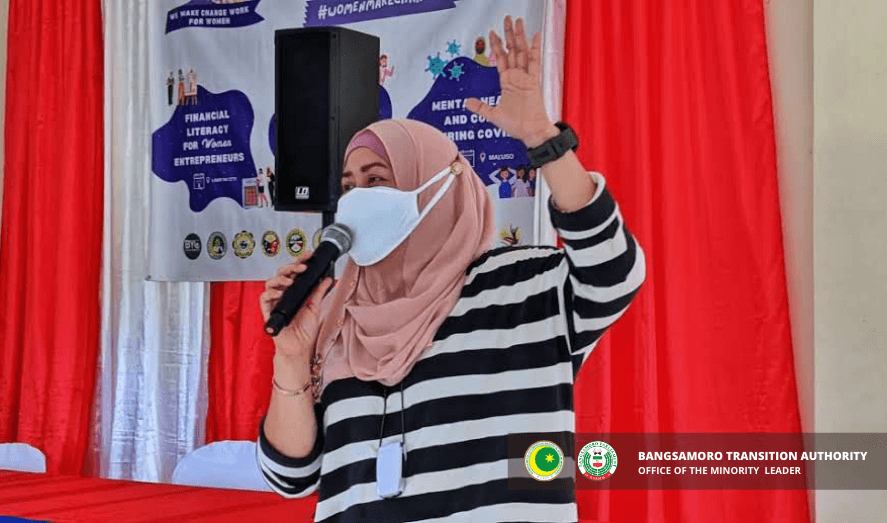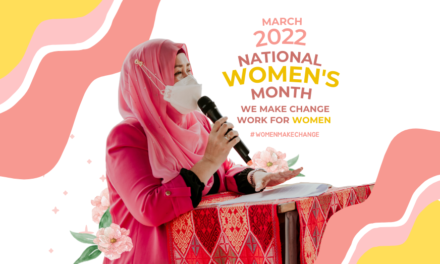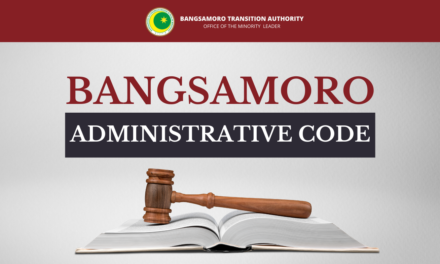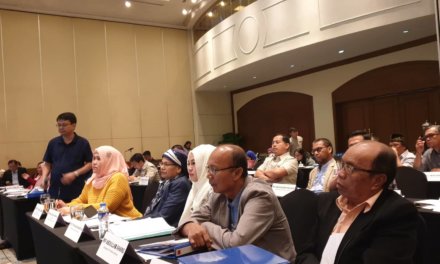“It simply isn’t true that things have been easier for teachers as we adapted new methods of teaching during the pandemic,” Minority Floor Leader Atty. Laisa Masuhud Alamia said during a mental health seminar on March 15, with thirty women teachers based in Maluso, Basilan.
Recognizing that a majority of the regional government’s workforce are teachers in the education sector — more than half of whom are women — MP Alamia made sure to host a mental health and wellness seminar that specifically caters to the teachers based in Bangsamoro communities.
“Women face a lot of challenges as it is, given constraints anchored on culture and tradition, but for women who teach children apart from their own and within the context of a pandemic, these challenges take on a different dimension,” MP Alamia said.
Macho tendencies, toxic masculinity, factor into women’s mental health
“Stress and anxiety are normal responses which help us survive,” said guest speaker Abdul Haiy Sali, a former teacher who is also a registered health professional. “In order to maintain our mental health, it is important to recognize triggers and how our body reacts to stress and anxiety.”
During his talk, Sali enumerated a number of factors both at home and in school as he asked if said factors stressed the teachers out. For each and every item, including their children and students, the teachers answered a resounding yes. While stress used to be manageable prior to the pandemic, constrains and limitations in place to prevent the spread of Covid-19 have made it difficult to adjust.
Pressures in the home mount as livelihood becomes difficult to sustain and socioeconomic stability hangs in the balance. One of the teachers mentioned how husbands who want to maintain a “macho image” are particularly stressful as the men try to conceal their sadness instead of dealing with it directly. Sali links this tendency to the culture of “toxic masculinity,” which also compromises the mental health of men.
“Men and women tend to respond to stress differently,” Sali pointed out, “and these responses reflect and reinforce gender stereotypes.” He noted the need to go beyond these stereotypes to emphasize equality between men and women and to support each other better through stress.
Promotion and protection of women’s rights essential to governance
Atty. Alman-Najar Namla, provincial director of the Bangsamoro Human Rights Commission-Basilan, led the discussion of national laws and international legal instruments that uphold the rights of women in the Philippines. The Philippine Constitution, he notes, is unique because it explicitly states and highlights the importance of women’s role in nation building.
In his lecture, Atty. Namla also noted provisions in the Bangsamoro Organic Law that emphasize the need for women’s political participation as the foundation for the new regional government is laid out, especially during the period of transition.
The event featuring the said seminar and lecture held in Maluso is part of a series organized and led by the Office of the Minority Floor Leader as part of this year’s Women’s Month celebration, in partnership with the Bangsamoro Human Rights Commission, the Bangsamoro Youth Commission, and the Bangsamoro Women’s Commission.
MP Alamia plans to hold similar mental health and wellness events for teachers in other municipalities of Basilan, with the hopes of eventually bringing the said event to other areas across the region. Teacher-beneficiaries in Maluso also plan to hold follow-up events for fellow teachers who were not able to attend the event due to quarantine protocols, but would benefit greatly from lessons learned during the event.








